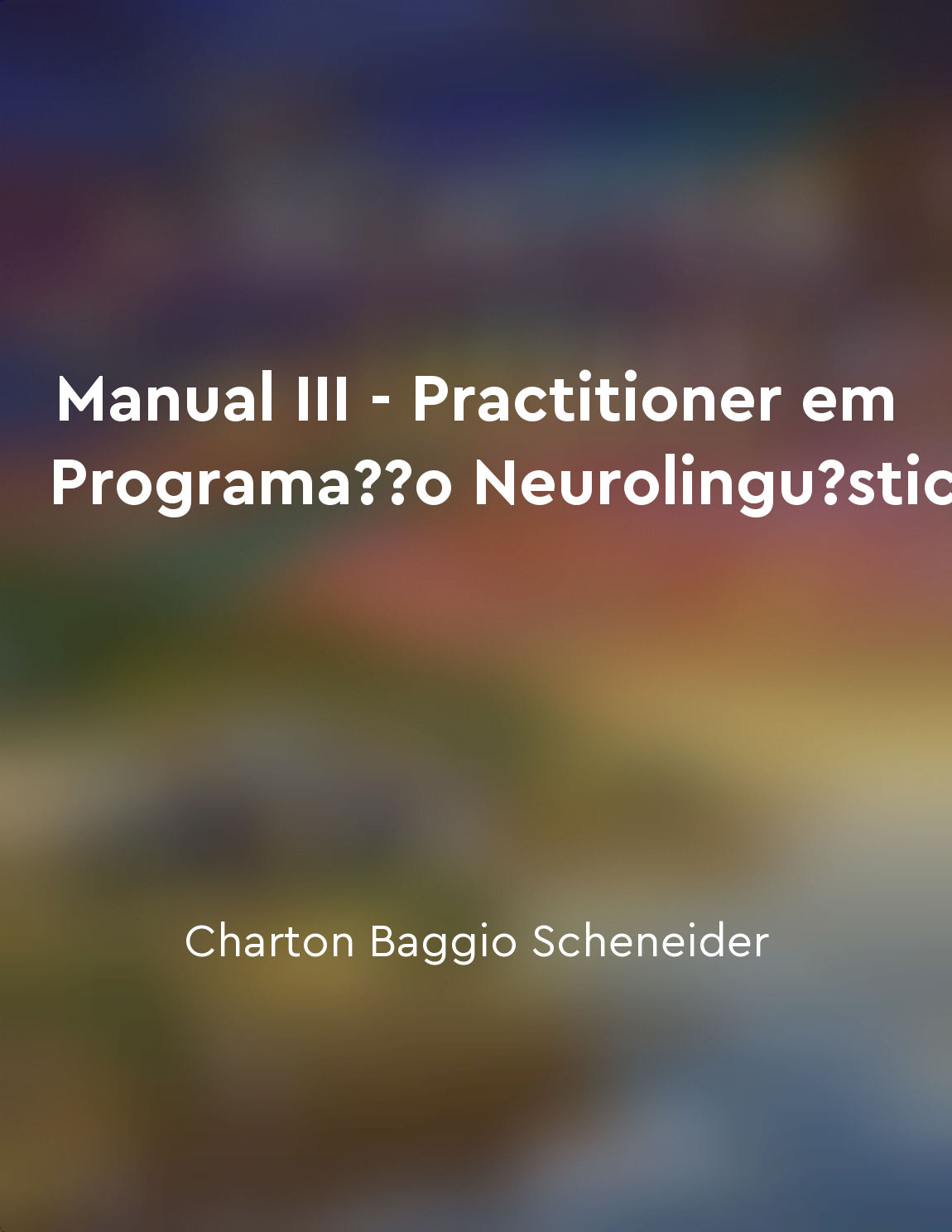Audio available in app
Strategies for managing stress and anxiety through language reframing from "summary" of Manual III - Practitioner em Programação Neurolinguística by Charton Baggio Scheneider
The concept of managing stress and anxiety through language reframing involves changing the way we think and speak about stressful situations in order to reduce their impact on our mental and emotional well-being. By reframing our language, we can shift our perspective and create a more positive and empowering narrative that helps us cope with stress and anxiety more effectively. One strategy for managing stress and anxiety through language reframing is to pay attention to the words we use when talking about stressful situations. By choosing more positive and empowering language, we can change our emotional response to stress and anxiety. For example, instead of saying "I can't handle this," we can reframe it as "I am capable of finding solutions to this challenge." Another strategy is to practice self-compassion and kindness in our inner dialogue. By speaking to ourselves with understanding and encouragement, we can reduce the negative impact of stress and anxiety on our mental and emotional well-being. For example, instead of criticizing ourselves for feeling anxious, we can offer ourselves words of comfort and reassurance. Additionally, using visualization techniques can be a powerful way to reframe our language and manage stress and anxiety. By imagining a positive outcome or visualizing ourselves overcoming challenges, we can create a more optimistic and empowering narrative that helps us cope with stress and anxiety more effectively.- Managing stress and anxiety through language reframing involves changing the way we think and speak about stressful situations in order to reduce their impact on our mental and emotional well-being. By paying attention to the words we use, practicing self-compassion, and using visualization techniques, we can create a more positive and empowering narrative that helps us cope with stress and anxiety more effectively.
Similar Posts

Let go of what no longer serves you
Think of your life as a garden. Just like in a garden, there are things that no longer serve you. These things may have served ...
Our upbringing affects our emotional patterns
The emotional patterns we exhibit are deeply influenced by the environment in which we were raised. Our upbringing plays a cruc...
Seek help and support when needed
When you're faced with a challenging situation, it's essential to recognize when you could benefit from seeking help and suppor...

Find beauty in every moment
Every moment in our lives is an opportunity to find beauty. It is easy to get caught up in the hustle and bustle of daily life,...
Nonverbal cues play a significant role in communication
Nonverbal cues are a fundamental aspect of communication. They often convey information that words alone cannot express. In fac...
Connecting with nature can enhance mindfulness and wellbeing
Connecting with nature can enhance mindfulness and wellbeing. When we take the time to step outside and immerse ourselves in th...
Recognizing emotional triggers is crucial for overcoming obstacles
Understanding our emotional triggers is essential in our journey to overcome obstacles. It is through recognizing these trigger...
Selfcare is essential for recovery
Selfcare is essential for recovery. It is important to understand that recovery from addiction is a complex process that requir...
Cultivate gratitude
To cultivate gratitude means to actively work on recognizing and appreciating the positive aspects of one's life. This involves...

Seek feedback and learn from it
One of the most important keys to success is the ability to seek feedback and learn from it. Feedback is like a mirror that ref...


